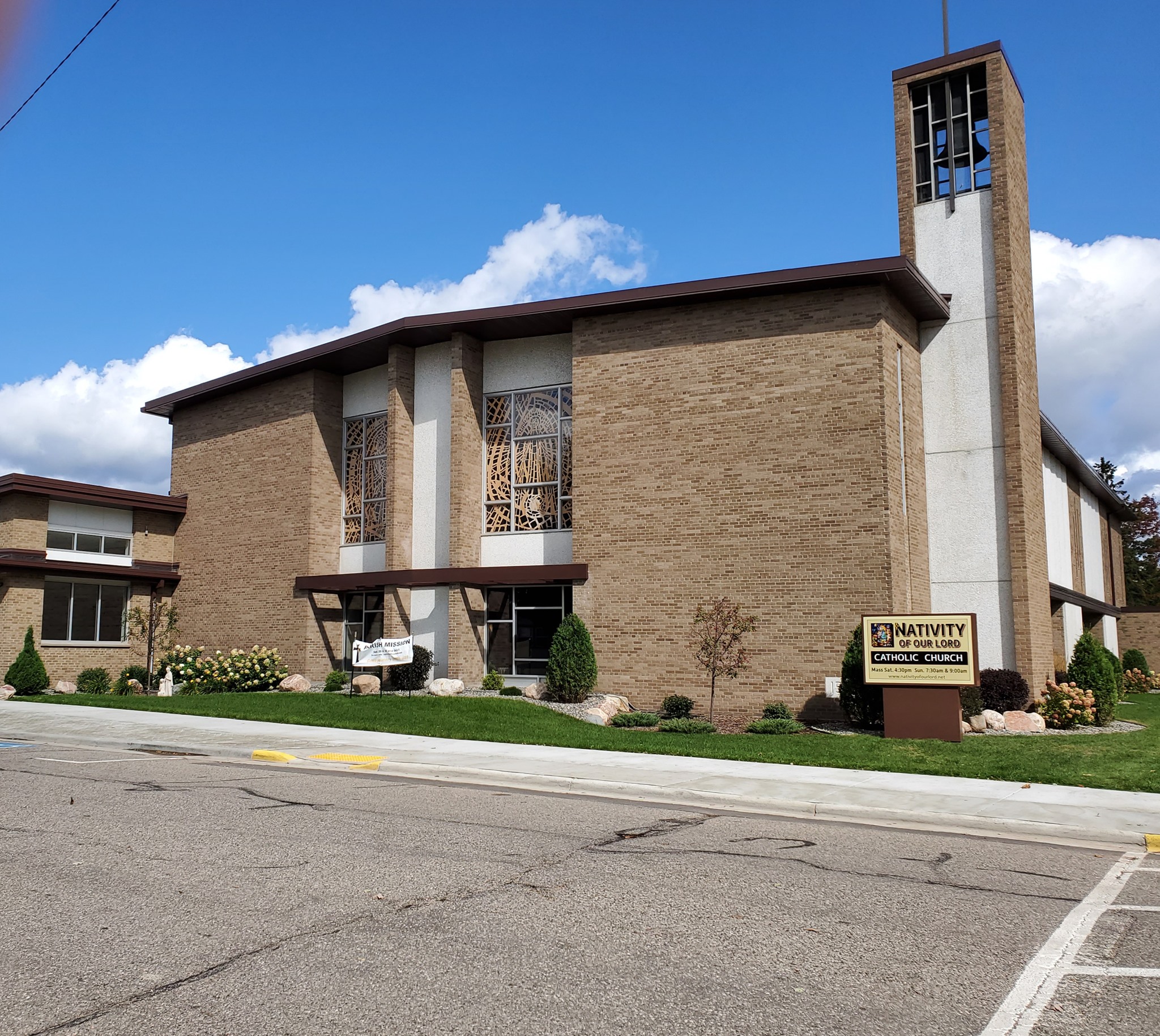
Nativity of Our Lord, Rhinelander (Image courtesy of Facebook)
Jenny Snarski
Catholic Herald Staff
Prayer leads to opportunity.
That sums up the experience of Barbara Eretto, director of religious education at Rhinelander’s Nativity Parish. After hearing a homily about the importance of the domestic church while attending Mass at the La Crosse Shrine of Our Lady of Guadalupe last spring, Eretto began a prayer initiative for families.
“As with anything, prayer leads to the opportunity to bring the project forward,” she said.
During August 2020, Eretto worked with Nativity School principal Melanie Nycz on ways they could make the idea of the family as a domestic church come alive for their parish and school families. With the support of their pastor, Fr. Chris Kemp, a joint domestic church initiative was launched and carried out during the school year.
To kick off the project, Eretto did a presentation for Nativity’s Catholic school teachers and parish catechists about the domestic church and its importance in families. Eretto was the main presenter, and the principal supported the project by explaining how it would be handled and what was expected of the teachers.
Principal and DRE together came up with an idea that be simple enough for families to follow and participate – read, reflect and act.
In their message for the initial launch, they noted Bishop James P. Powers desired a focus on the family as the domestic church for the catechetical year, along with a brief explanation of what that meant.
First, tying the foundation of a Christian family to the Eucharist, Eretto said, “When we partake in the Eucharistic bread, the Christian family becomes one body which shares in the wider unity of the church. When we share in this Body of Christ, it becomes a never-ending source of our mission as a Christian family.”
She noted that the idea of the family as the domestic church is not new; it is found in many statements and church documents, including the “Catechism of the Catholic Church” and St. Pope John Paull II’s encyclical on the family, “Familiaris Consortio.”
“The Christian home is the place where the children receive the first proclamation of the faith,” Eretto quoted from paragraph 1666 of the catechism. “For this reason, the family is rightly called ‘the domestic church,’ a community of grace and prayer, a school of human virtues and of Christian charity.”
Eretto continued in her own words, “It doesn’t stop here. It goes beyond the words on this page into our homes. You are already a domestic church practicing your role as the primary educators of the faith to your family. Our role is to offer you support enabling you to make your domestic church stronger.”
Each month, a one-page handout was prepared with prayer, some catechetical formation to read together, a reflection and an opportunity to respond as a family.
While the project was well-received, Eretto stated that responses were slow at first. Input shared from Peggy Schoenfuss, who oversees both Catholic schools and faith formation programs in the Diocese of Superior, prompted development of an electronic response format.
The response simply offers a connection where family inputs that they fulfilled the month’s activity, their children’s names and grades and the option to list future topics about which they are interested in learning.
“This is when the project took off,” Eretto added.
After having received between 10 and 25 responses when the project started in November, last month more than 50 responses were logged.
Eretto shared, “To date, since the beginning of the project we have received over 200 responses from our families with many families participating every month.
“It has been wonderful to see more and more families becoming involved in the initiative,” said Nativity School’s principal.
Nycz added, “This truly is Barbara’s creation. I just supported her by sending it home to our school families … and getting the school staff involved so that they could remind and encourage their students to participate.”
Organizers plan to continue the initiative, incorporating a discovery they made through the responses.
“We discovered that when the discussions and catechetical piece were connected to the liturgical calendar, it received a great response,” Eretto said. “Because of this, the plan for next year is to have the catechetical message each month connect to what is going on liturgically,” she added, “so that we now can connect our families to something that they are doing in their home with what we are doing at Mass.”
